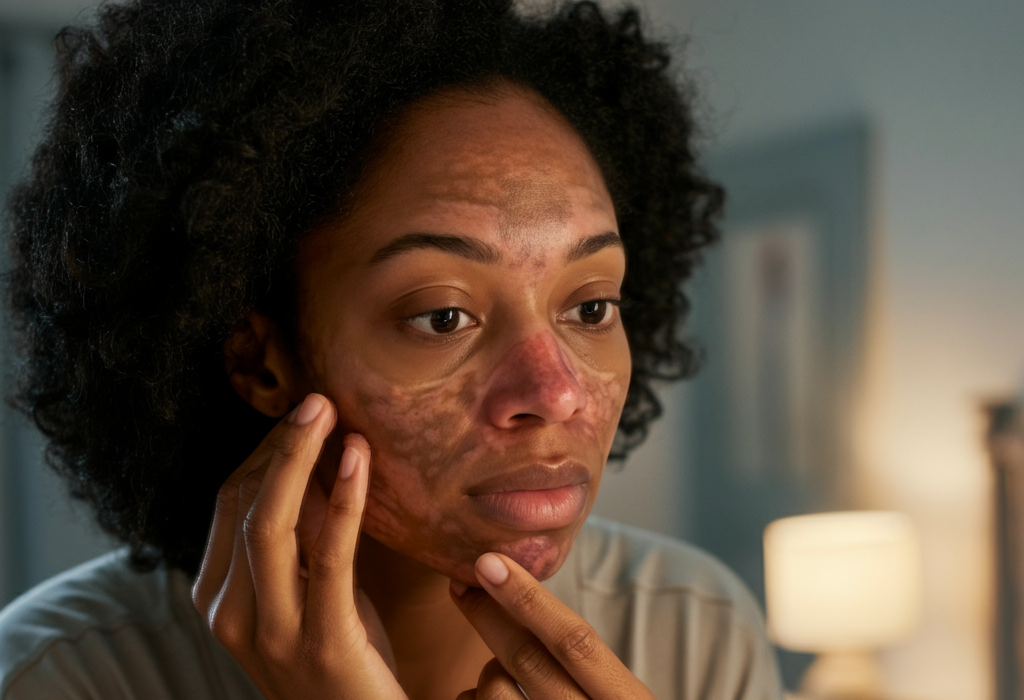Everything You Need to Know About Managing Hyperpigmentation

Dealing with dark spots or uneven skin tone? Hyperpigmentation can be challenging, but understanding it is the first step to managing it effectively. Here’s an in-depth look at what hyperpigmentation is, how it develops, and ways to prevent and treat it.
What is Hyperpigmentation?
Hyperpigmentation refers to areas of darker skin caused by an excess production of melanin, the pigment responsible for our skin color. Overactive melanocytes—cells responsible for melanin production—can be triggered by various internal and external factors.
This skin condition often occurs as a response to injuries or inflammation, such as acne scars, burns, or healing wounds. Cosmetic treatments like chemical peels and laser therapies can also prompt hyperpigmentation. When it stems from conditions like eczema, contact dermatitis, or acne, it’s known as post-inflammatory hyperpigmentation (PIH).
Another common culprit? Sun exposure. Prolonged exposure to UV rays can lead to patches of darker skin, which often appear as small, scattered spots.
Factors That Influence Hyperpigmentation
Hyperpigmentation is more common in individuals with darker or more pigmented skin tones. Those with skin types typical of Asians, African-Americans, Indians, Hispanics, Middle Easterners, and Southern Europeans tend to have more active melanocytes, making them prone to hyperpigmentation triggers.
Melasma, a type of hyperpigmentation, frequently affects women—especially those who are pregnant or using hormonal contraceptives. Eastern and Southeast Asian women are particularly susceptible to developing melasma on their cheeks and other facial areas.
How to Prevent Hyperpigmentation
Hyperpigmentation can be persistent, but there are strategies to minimize its occurrence:
- For acne or skin inflammation-related hyperpigmentation, focus on skincare products that strengthen your skin barrier and control inflammation.
- Sun-induced hyperpigmentation can be prevented by diligently applying SPF, wearing protective clothing, and limiting sun exposure.
On the other hand, melasma prevention is more complex due to its genetic and hormonal nature. While complete prevention may not be achievable, maintaining a solid skincare routine and avoiding UV rays is key to management.
Hyperpigmentation Treatment Options
If prevention isn’t enough, several treatments can help reduce hyperpigmentation:
Over-the-Counter Ingredients
- Hydroquinone is one of the most potent treatments for hyperpigmentation, as it works to fade darker areas of skin. This ingredient is best used under the supervision of a dermatologist.
- Alternatives include ingredients like retinol, kojic acid, glycolic acid, azelaic acid, niacinamide, and vitamin C, which promote even skin tone and improve overall skin health.
Looking for recommendations? Products like Good (Skin) Day C’s The Day Serum (10% pure vitamin C) and Neogen Probiotics Double Action Serum (niacinamide-infused) are excellent for tackling discoloration and improving your skin’s barrier.
Chemical Peels
Stubborn hyperpigmentation that doesn’t respond to topical treatments may require a more aggressive approach, such as chemical peels.
- Superficial Peels: Ideal for resolving pigmentation in the top layers of the skin, these peels are often combined with topical solutions like hydroquinone.
- Deeper Peels: Conditions like dermal melasma may benefit from tailored treatments such as the Control Depth Peel (a TCA-based peel), which penetrates deeper layers of the skin for more dramatic results.
Cosmetic Solutions
If hyperpigmentation remains bothersome, makeup can offer a temporary fix. A smooth, even base can be achieved by layering primer, BB cream, foundation, and setting powder or spray.
Final Thoughts
Hyperpigmentation is a common—and notoriously stubborn—skin concern that can be difficult to manage. Take care of your skin by adopting a protective skincare routine that includes SPF, anti-inflammatory treatments, and skin-strengthening products. If over-the-counter solutions fall short, consider consulting a professional for more targeted treatments.
No matter what, be kind to yourself—it’s a normal skin condition, and finding what works for you takes time and patience.





